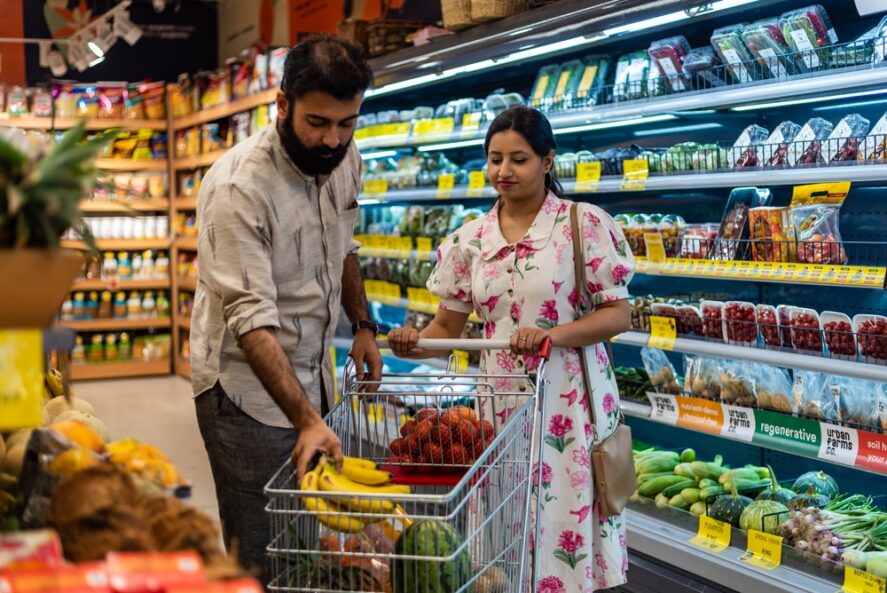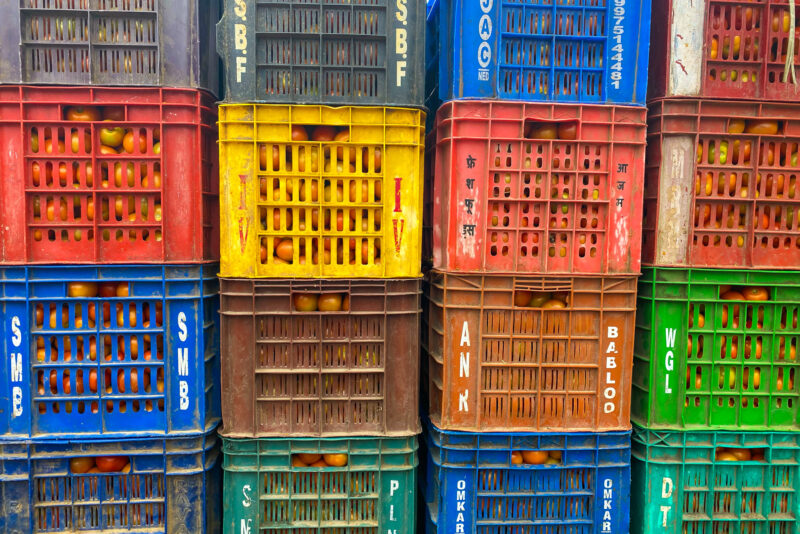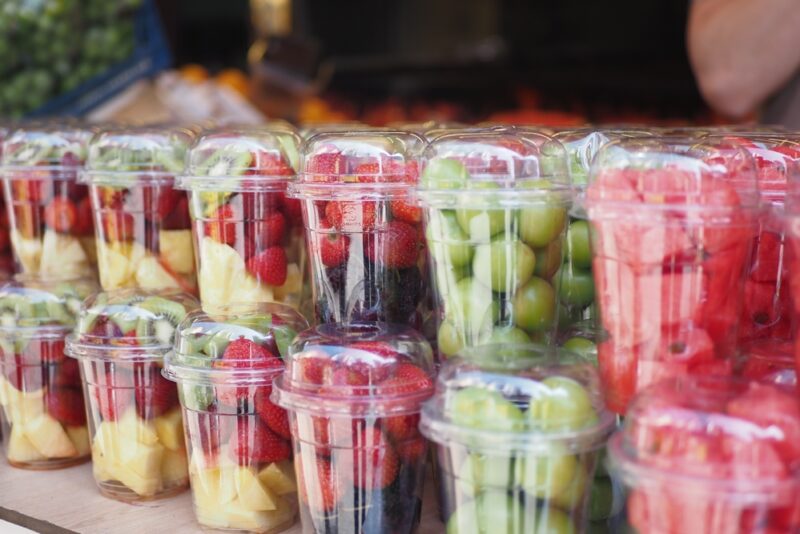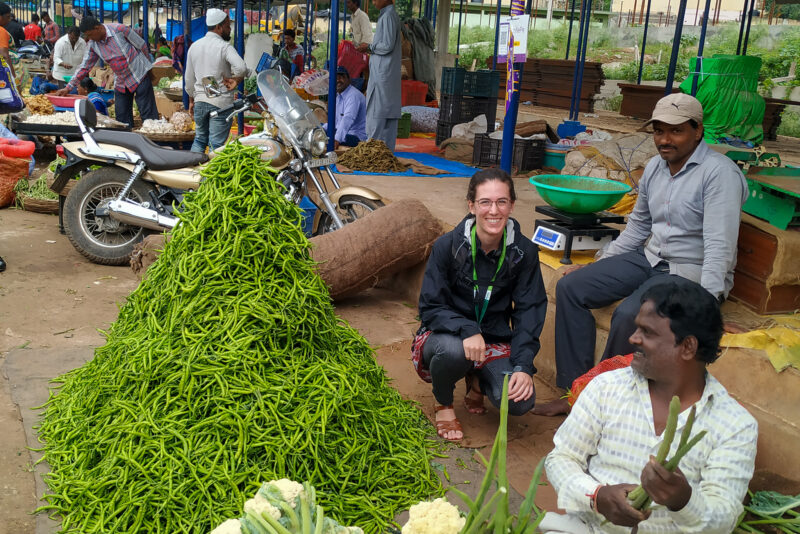Do Supermarkets Help India’s Small Farmers? It Depends.

When supermarkets first began spreading across India, they brought hope that smallholder farmers could make more money by selling them fresh, high-quality produce. Decades later, has that benefit materialized?
New research from the Tata-Cornell Institute for Agriculture and Nutrition (TCI) shows that selling to supermarkets does increase the incomes of farmers, but not all are equipped to take advantage of the opportunity. The study, published in the journal Economic and Political Weekly, reveals a 14% increase in incomes for farmers who sell to supermarkets. However, the study also shows that smaller, asset-poor farms are less likely to sell to supermarkets than their better-positioned peers.
“As India continues to develop and urbanize, the role of supermarkets in the country’s food system will only grow,” TCI Director Prabhu Pingali said. “Understanding how this affects smallholder farmers and why is imperative to ensuring that they benefit from this growth.”
To determine the impact of supermarkets and under what circumstances farmers could benefit from selling to them, researchers analyzed field surveys of farm households in four states across India. Roughly half of the respondents sold crops to supermarket procurement centers in their villages, while the rest sold only through traditional markets.
The analysis revealed that supermarket farmers make more money per acre than traditional farmers. The expected net income of a farmer selling to supermarkets was ₹83,461, compared with ₹71,169 for a farmer selling to traditional markets.
“Our research shows that supermarkets are a boon for those who are prepared to take advantage of the market opportunity, but not all farmers are ready to do so,” [Chandra] Nuthalapati said. “Policymakers ought to encourage the continued growth of supermarkets while simultaneously investing in services and infrastructure that may empower more farmers to sell to them.”
While the researchers found that farm size was generally not a predictor of whether a farmer sold to supermarkets, they did find that smaller farms were less likely to do so, possibly because of a lack of resources. Specialized vegetable farms and those equipped with irrigation were more likely to sell to supermarkets.
Pingali and lead author Chandra Nuthalapati, a visiting professor at TCI, said that the study provides policymakers with a number of options to help small farmers take advantage of modern retail markets, including incentivizing the expansion of procurement centers in rural areas and investing in irrigation and vegetable-production extension services.
“Our research shows that supermarkets are a boon for those who are prepared to take advantage of the market opportunity, but not all farmers are ready to do so,” Nuthalapati said. “Policymakers ought to encourage the continued growth of supermarkets while simultaneously investing in services and infrastructure that may empower more farmers to sell to them.”
Supermarkets have spread rapidly in India over the past 20 years, although presently food retail tends to be small-scale and fragmented. Some experts predicted that the rise of supermarkets and their procurement centers in rural areas would reduce farmers’ transaction costs and improve their access to markets. Others, however, feared that smallholders would be squeezed out by supermarkets’ high standards for quality, consistency, and volume.
Previous research on the impact of supermarkets in India showed an income benefit for small farmers but those studies were limited by small sample sizes and narrow geographic focuses. Based on surveys of 795 households that Nuthalapati conducted across India’s varied agroclimatic and socioeconomic regions, this new study provides stronger evidence of supermarket-linked income increases while teasing out nuanced trends about the factors that determine which farmers benefit.
Featured image: A young couple shops in the produce section of a supermarket. (Photo by Alisha Vasudev/Shutterstock)





